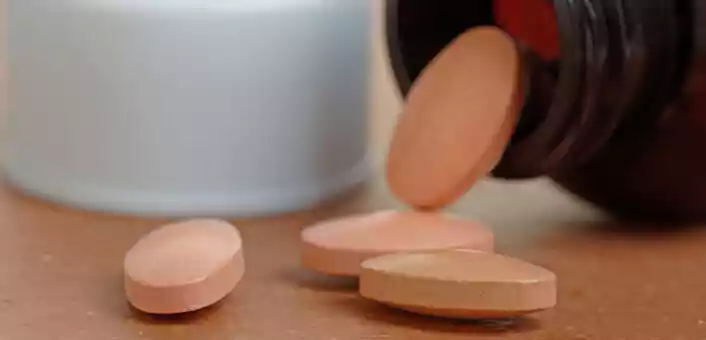PCOS test is based on the Rotterdam criteria for diagnosing PCOS.

Heart
Doctors often prescribe statins to control cholesterol levels. However, lowering cholesterol has nothing to do with reducing the risk of heart disease. Your body needs cholesterol for many of its crucial functions. And the worst part is statins come with a host of side effects. Let’s look at some common side effects of statins.
Here are some side effects of statins that you may experience as soon as you start taking them:
The long-term use of statins is associated with some rare, yet serious, side effects. These are:
This is the most common side effects of statins. Many patients experience soreness and weakness of the muscles and tiredness and many stop taking statins as a result of this discomfort. Some people may feel minor discomfort while others may experience severe pain, enough to make daily activities difficult. In certain extremely rare cases, statin use causes a muscle condition called “rhabdomyolysis” that causes severe muscle pain, damage to the liver and kidneys, and even death. The risks of myositis and rhabdomyolysis increase when certain drugs (like other cholesterol-reducing medicine) are taken along with statins, or if a higher dose of statins is taken.
Although very rare, a long-term side effect of statins is an increase the levels of enzymes that cause inflammation of the liver, and ultimately cause liver damage. If the damage is mild, doctors often ask to continue with the drug. But they need to regularly assess the levels of certain enzymes that reveal the state of liver health.
Statin use may increase blood sugar levels and cause full-blown type 2 diabetes. This is particularly worrisome for women with PCOS because they are already at risk of developing type 2 diabetes.
In rare cases, long-term side effects of statins include neurological problems like memory loss and confusion. These side effects, however, resolve with stopping statin therapy.
An increased risk of developing cataract is one of the side effects of statins. Cataract is an eye condition in which the lens is clouded. It is a major reason for the loss of vision in the elderly.
Long-term statin use can also deplete certain vital nutrients, such as Coenzyme Q10 and vitamin K2, from your body. While CoQ10 is used for the production of energy by cells of our body, vitamin K2 protects your arteries from plaques and hardening. K2 deficiency puts you at risk of health conditions like osteoporosis, cancer, kidney stones, brain disease and most ironically, heart disease.
Statins also reduce the production of ketone in the body. Ketone bodies provide several health benefits such as reducing blood glucose and insulin levels, suppressing hunger and food cravings, and improved mental health.
Statins are often prescribed for PCOS patients for reducing androgen levels. As mentioned above, statins reduce cholesterol levels. Decreased cholesterol also reduces the production of androgens or male hormones. In women with PCOS, many health problems are a direct result of overproduction of male hormones.
A study presented at the 68th annual meeting of American Society of Reproductive Medicine showed that atorvastatin, a member of statins drug class, impaired insulin sensitivity in women with PCOS. The study further advised that it should not be prescribed to PCOS patients unless “patients also demonstrate risk factors for cardiovascular disease.”
Cholesterol synthesis is a complex multi-step process that occurs in the liver. Statins curb a crucial step of this process and they impair the activity of an enzyme called HMG-CoA reductase. This curbing results in lower cholesterol production as well as other biologically active compounds. According to conventional medicine, this eventually improves the lipid profile of patients and reduce their risk of cardiovascular diseases.
In women, statin drugs also protect the ovaries from the harmful effects of excessive insulin and insulin-like growth factor-1 (IGF-1) receptors. Statins also show antioxidant activity which helps in reducing oxidative stress.
The first step is to find out whether the side effects are due to statins. For example, muscle fatigue can also be caused due to a severe vitamin D deficiency. Most side effects of statins are dose-dependent. The doctor may reduce your dosage if the side effects are severe enough to hamper daily activities. Also, your doctor may change the type of statin prescribed. For example, changing to fluvastatin can help reduce the problems with muscles as fluvastatin, though potent, is associated with lower muscle adverse effects.
Pregnant or breastfeeding women should not take statins. You need to tell your doctor about your allergies, or if you are taking other medicines, or you have diabetes or liver disease. Tell your doctor about any prescription medicines or supplements you are taking or plan to take in the future before starting statin therapy.
Statins interfere with the efficiency of the following drugs:
Certain chemicals in grapefruit juice interact with enzymes required to break down statins in the body. If the enzymes don’t work properly, statins will not be cleared from the body effectively. They will remain for a longer time, which means their side effects will show for a longer time.
If you’re on statins, you don’t have to completely eliminate grapefruit juice from your diet, because this interaction is dose and time-dependent. Just ask your doctor how much grapefruit juice is good for you and at what times. There are certain other fruits that might also increase statin absorption. These fruits include tangelos (hybrids of tangerines and grapefruit) and Seville Oranges (type of bitter oranges), and should be consumed only after consulting with your doctor.